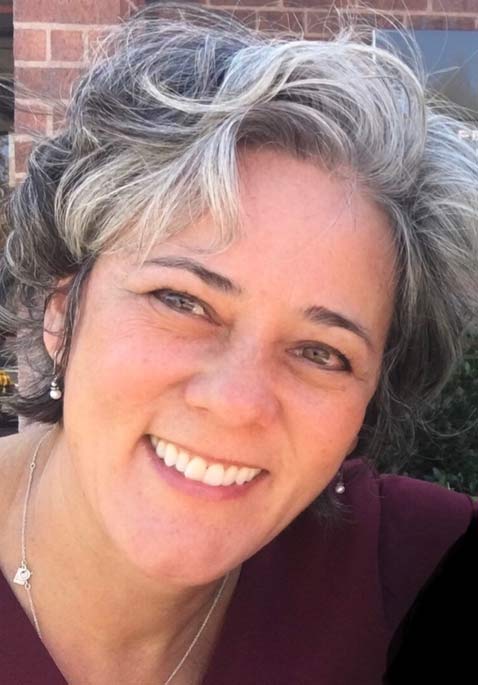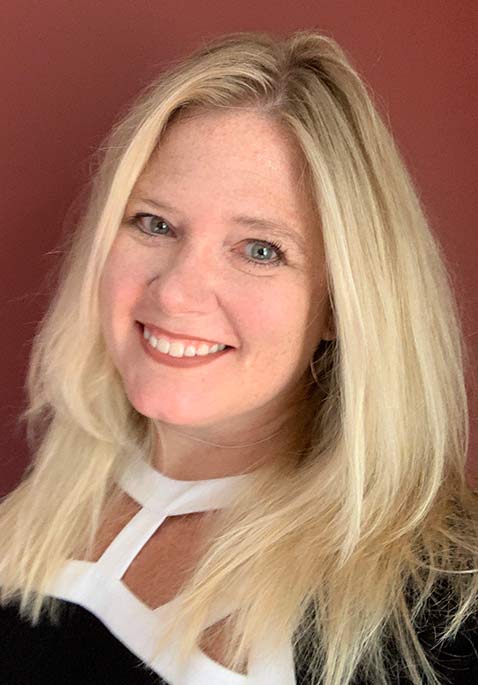About

Karen McAvoy, PsyD
Karen McAvoy, PsyD is dually credentialed as a clinical and school psychologist. She practiced as a Pediatric Psychologist at Seattle and Denver Children’s Hospitals and as the Director of the Center for Concussion with Rocky Mountain Hospital for Children. She also practiced as a School Psychologist for 20 years serving as Coordinator of Mental Health, Coordinator of Manifestation Determinations and Coordinator of the Brain Injury Team at Cherry Creek School District. After 20 years on the frontlines in a school district, Dr McAvoy then served as a consultant for an additional 10 years to the Colorado Department of Education – providing trainings to multi-disciplinary school teams across the state of Colorado on the impact of brain injury and neuro-diversity on learning and behavior.
Dr. McAvoy is the author of REAP (Remove/Reduce* Educate*Adjust/Accommodate and Pace) – a community-based inter-disciplinary team approach to concussion management customized in 12+ states: www.REAPconcussion.com.
Dr. McAvoy continues to keep a foot each in the world of medicine and education: half-time she provides assessments, treatment and consultation to adults and children suffering from mild/moderate/severe brain injury at the Aasha Brain Clinic in Ft Collins, CO. The other half of her time is spent routinely traveling the country providing training to schools on Return to Learn following brain injury.
Publications
- McAvoy, K. Haarbauer-Krupa, J. What schools need to know about the centers for disease control and prevention’s guideline on diagnosis/management of mild traumatic brain injury in children – a commentary. J School Health. 2019;89:941-944. DOI: 10.1111/josh.12834
- McAvoy, K, Eagan-Brown, B. & Halstead, M. Return to learn: Transitioning to school and through ascending levels of academic support for students following a concussion. NeuroRehabilitation (2018). Volume 42, 325–330 325 DOI:10.3233/NRE-172381
- Contributor: Centers for Disease Control and Prevention. Report to Congress: The Management of Traumatic Brain Injury in Children, (2018). National Center for Injury Prevention and Control; Division of Unintentional Injury Prevention. Atlanta, GA.
- Crawford, N., Hotchkiss, H. & McAvoy, K. Neuroeducational Evaluations – The School-Based Answer to Pediatric Neuropsychological Assessments. Brain Injury Professional (2017). Volume 14 (6), 10-14.
- Eagan-Brown, B., Oro, S. & McAvoy, K. School Nurses: Managing Student Concussions and Privacy Concerns. Brain Injury Professional (2017). Volume 14 (6), 28-30.
- Acute Concussion Management with Remove-Reduce/Educate/Adjust-Accommodate/Pace (REAP), Kirelik, S & McAvoy, K. (2016). Journal of Emergency Medicine, Vol. 50, (2), 320-324.
- Dettmer, J., Ettel, D., Glang, A., & McAvoy, K. Building statewide infrastructure for effective educational services for students with TBI: Promising practices and recommendations. The Journal of Head Trauma Rehabilitation, (2014). Volume 29(3), 224-232.
- Hossler, P., McAvoy, K., Rossen, E.., Schoessler, S, Thompson, P. A Comprehensive Team Approach to Treating Concussions in Student Athletes, Principal’s Research Review (2014). Volume 9, Issue 3.
- Halstead, M.E., McAvoy, K., Devore, C. D., Carl, R., Lee, M., Logan, K., Council on Sports Medicine and Fitness and Council on School Health, American Academy of Pediatrics, Clinical Report, Returning to Learning Following a Concussion Journal of Pediatrics (2013). Volume 132 (5), 948-957.
- McAvoy, K., Return to Learning: Going Back to School Following a Concussion, National Association of School Psychologists Communique (2012). Volume 40, Number 6.
- McAvoy, K., Providing a Continuum of Care for Concussion using Existing Educational Frameworks. Brain Injury Professional (2011). Volume 9 (1), 26-27.
- Colorado Department of Education, Concussion Management Guidelines, January 2012 & revised April 2014 and Brain Injury Manual for Educators, January 2013 & revised May 2018.
- External Expert Reviewer/Contributor: CDC Heads Up to Schools: Know Your Concussion ABC’s, Returning to School After a Concussion: A Fact Sheet for School Professionals, Fall 2012.
Awards and Acknowledgements
- Invited Speaker on “Return to Learn” at the USA Swim Team, Sports Medicine Conference, Olympic Training Center, Colorado Springs, May 12, 2018
- National Collaborative on Children’s Brain Injury (NCCBI): Tasked by NCCBI to lead the 1st Consensus Paper on Return to Learn (using a Delphi Model). RTL Consensus was reached in 2 rounds of Delphi questionnaires and RTL statements are endorsed by 12 national organizations. Currently RTL Consensus Paper is in review for possible publication by Spring to Summer, 2018.
- Contributor: Guidelines on the Diagnosis and Management of Mild Traumatic Brain Injury Among Children: Recommendations from the CDC. AMA Pediatr. doi:10.1001/jamapediatrics.2018.2853 Published online September 4, 2018.
- Invited speaker on “Return to Learn” at the TBI Taskforce Congressional Briefing, Washington DC, March 16, 2016.
- Invited speaker on “Return to Learn” at the National Institute of Health Meeting, Washington, DC, October 14 & 15, 2016.
- Author/Contributor to the Colorado Department of Education – TBI Networking Team Steering Committee Member: www.COkidswithbraininjury.com

Brenda Eagan-Johnson, EdD, CBIST
Brenda Eagan-Johnson Ed.D., CBIST has over two decades of experience in the field of pediatric brain injury, education, and neuro-developmental issues in children. Dr. Eagan-Johnson has been instrumental in the creation, development, and daily oversight of the nationally recognized child and adolescent brain injury school consulting program, BrainSTEPS as Pennsylvania’s Program Coordinator. She also serves as a consultant to a $2.2 million-dollar 4-year study related to BrainSTEPS outcomes funded by the Centers for Disease Control and awarded to Case Western Reserve University. Through her work, Dr. Eagan-Johnson regularly trains medical, rehabilitation, regular education, and special education professionals on the identification, symptoms, and educational treatment methods to improve cognitive, executive function, behavioral, social, and communication skills in students who sustain acquired brain injuries. Dr. Eagan-Johnson received her master’s degree in the educational aspects of pediatric TBI from George Washington University, where she now serves as an adjunct instructor in the graduate school. She holds a Doctor of Education degree in Mind, Brain, and Teaching (educational neuroscience) from Johns Hopkins University. Her research investigated Return to Learn Concussion Management Teams in PA related to fidelity of return to learn protocol implementation, knowledge, and beliefs. She holds three teaching certifications and serves on the board of governors for the Academy of Certified Brain Injury Specialists (ACBIS) under the Brain Injury Association of America (BIAA) and has her Certified Brain Injury Specialist Trainer (CBIST) certification. Additionally, she serves on a national workgroup developing the pediatric portion of a new professional concussion certification under ACBIS/BIAA. Dr. Eagan-Johnson is published in pediatric brain injury, regularly presents at the national and international levels, and has received multiple state and national awards for her work. She was the co-lead for the 1st Concussion Return to Learn Consensus, under the National Collaborative on Children’s Brain Injury. She is also active with the ENIGMA Brain Injury Intimate Partner Violence research group. Spearheading development and creation of Pennsylvania’s Return to Learn Concussion Management Team Model, now endorsed by two state Departments of Education, Dr. Eagan-Johnson has trained over 2,800 school-based concussion teams since 2013. Her brother sustained a severe TBI when they were teenagers, which is where her passion in the field began.
Peer-Reviewed Journal Publications
- Esopenko, C…. Eagan-Johnson, B…Hillary, F. A Global Collaboration to Study Intimate Partner Violence-Related Head Trauma: The ENIGMA Consortium IPV Working Group. Manuscript submitted for publication.
- McAvoy, K., & Eagan-Johnson, B., Dymacek, R., Hooper, S., McCart, M., & Tyler, J. (2020). Establishing Consensus for Essential Elements in Returning to Learn Following a Concussion. Journal of School Health. Manuscript accepted for publication.
- Haarbauer-Krupa, J., Sarmiento, K., Thigpen, S., Glang, A., Eagan-Johnson, B., McAvoy, K., Chinnis, M., Kurowksi, B., Suskauer, S., Crowley, M., & Denslow, P. Returning to school after traumatic brain injury: Description of programs addressing the issues. Manuscript in process.
- Guest Editor: Eagan-Johnson, B.
American Speech-Language-Hearing Association (ASHA)
Special Interest Group 2 Perspectives issue for Neurogenic Communication Disorders
2020 scheduled publication - Salley, J., Krusen, S., Lockovich, M., Wilson, B., Eagan-Johnson, B., & Tyler, J. (2019). Maximizing expertise and collaboration to support students with brain injury: A case study in speech-language pathology. Perspectives of the ASHA Special Interest Groups. 1-16
- Salley, J., Eagan-Johnson, B., Vaccaro, M., & Ciccia, A. Academic & Post-Secondary Participation of Students with Acquired Brain Injury. AJSLP. Manuscript in process.
- Salley, J., Eagan-Johnson, B., Vaccaro, M., Nagele, D., & Ciccia, A. Long Term Need & Outcomes for Students with Acquired Brain Injury. Brain Injury. Under Revision.
- Eagan-Johnson, B. & Grandinette, S. (2018). Addressing Educational Challenges in Pediatric Onset Brain Injury. Journal of Life Care Planning, 16(1), 53-61.
- McAvoy, K., Eagan-Johnson, B., & Halstead, M. (2018). Return to learn: Transitioning to school and through ascending levels of academic support for students following a concussion. NeuroRehabilitation, (Preprint), 1–6. doi:10.3233/NRE-172381
- Myers, R.., Eagan-Brown, B., Conway, A., Nagele, D., Vaccaro, M., Kendi, S., & Zonfrillo, M. (2017). Examining a statewide educational consulting program for pediatric brain injury. Clinical Pediatrics, ePub ahead of print, 1-11. doi:10.1177/0009922817732146.
- Halstead, M., Eagan Brown, B., & McAvoy, K. (2016). Cognitive rest following concussions: Rethinking cognitive rest. British Journal of Sports Medicine, 0, 1. doi:10.1136/bjsports-2016-096674
- Halstead, M., McAvoy, K., & Eagan Brown, B. (2016) Expanding concussion laws not necessary for return to learning after concussion. Pediatrics, 138(6), 1-2. doi:10.1542/peds.2016-3194
- Gioia, G. A., Glang, A. E., Hooper, S. R., & Eagan Brown, B. (2016). Building statewide infrastructure for the academic support of students with mild traumatic brain injury. The Journal of Head Trauma Rehabilitation, 31(6), 397–406. doi:10.1097/HTR.0000000000000205
- Zirkel, P., & Eagan Brown, B. (2015). K-12 students with concussions: A legal perspective. The Journal of School Nursing, 31(2), 99-109. doi: 10.1177/1059840514521465
- Glang, A., Todis, B., Sublette, P., Eagan Brown, B., & Vaccaro, M. (2010). Professional development in TBI for educators: the importance of context. The Journal of Head Trauma Rehabilitation, 25(6), 426–432. doi:10.1097/HTR.0b013e3181fb8f45
Other Publications
- Eagan Brown, B., Grandinette, S., Johnson, C., & Shea, M. (2017). The value of educators and brain injury educational specialists in a pediatric legal case. Brain Injury Professional, 14(3), 20-23.
- Eagan Brown, B., Orzo, S., McAvoy, K. (2017). School nurses: Managing student concussions and privacy concerns. Brain Injury Professional, 14(3), 28-30.
- Pennsylvania Department of Education. (2017). The BrainSTEPS program – returning to school after concussion: Recommended protocol. Co-Author.
- Pennsylvania Department of Education. (2016). Teacher’s desk reference on concussion. Co-
- Centers for Disease Control and Prevention. (2013). Helping students recover from a concussion: Classroom tips for teachers. Co-Author.
- Eagan Brown, B. (2010). Pennsylvania’s BrainSTEPS: Child & Adolescent Brain Injury School Re-Entry Program. Brain Injury Professional, 7(2).
Expert External Reviewer
- Centers for Disease Control. (2018). Report to Congress: The management of traumatic brain injury in children: Opportunities for action. Washington, DC: U.S. Government Printing Office.
National and State Honors
- National Collaborative on Children’s Brain Injury (NCCBI): Tasked to lead the 1st Consensus Paper on Return to Learn (using a Delphi Model). RTL Consensus was reached in 2 rounds of Delphi questionnaires and RTL statements are endorsed by 12 national organizations. Currently RTL Consensus Paper is in review for publication during 2020 in the Journal of School Health.
- Pediatric concussion module development workgroup member for the new international Concussion Certification created for the Academy of Certified Brain Injury Specialists under the Brain Injury Association of America.
- Invitation to serve on the workgroup for the GalvestonBrain Injury Conference which is a two year commitment, 2019 & 2021, to work with national leaders in the field of pediatric brain injury to develop a plan of action to set national policy agenda as a follow-up to the CDC’s Report to Congress on the Management of TBI in children. Sponsored by University of Texas Medical Branch (UTMB) and The Learning Center (TLC).
- Obama Appointed Institute of Medicine (IOM) & National Academy of Sciences
Invited Presenter- Academic Implications Following Concussions in Youth Athletes, Washington, DC, 2013 - Centers for Disease Control and Prevention, National Center for Injury Prevention and Control, Division of Unintentional Injury Prevention
Expert Panel Concussion in Schools, Atlanta, GA, 2012
